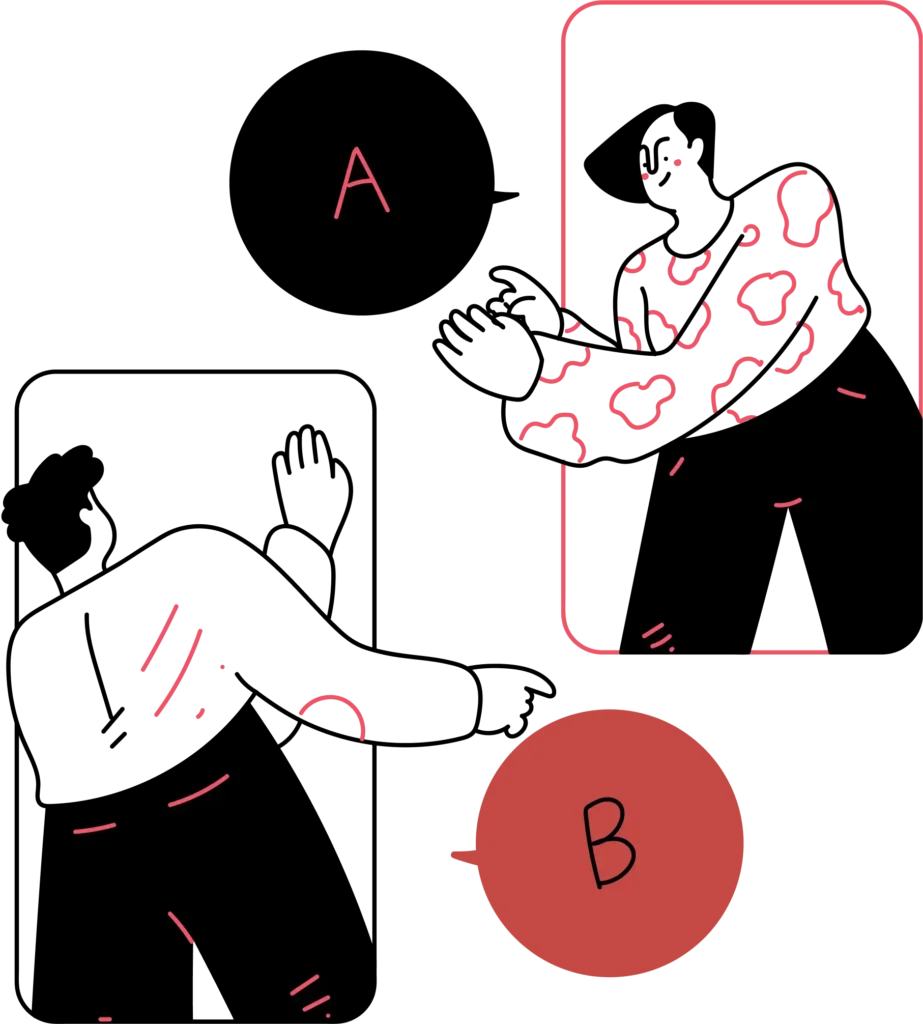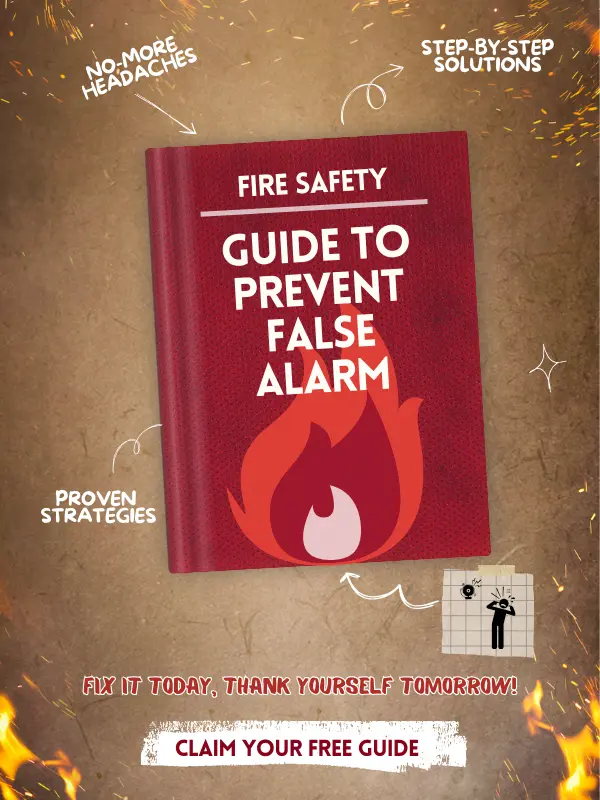
- Humidity can cause false fire alarms, especially in kitchens or warehouses.
- Use dehumidifiers to control moisture levels in the air.
- Ensure proper ventilation to reduce humidity buildup.
- Regularly maintain and clean smoke detectors to avoid false triggers.
- Proactive monitoring can save time and prevent unnecessary disruptions.
Regular maintenance of fire alarms and smoke detectors is vital for sustaining sensors and notification devices and ultimately ensuring a protected environment for you and your loved ones. Imagine a situation where you’re about to lie on your bed after a tiring day. Your smoke alarm gets triggered at that exact moment, initiating a series of annoying beeps that are enough to conclude that your good night’s sleep has been ruined. Now, you must stay up late and crack your brains over the exact cause of your beeping, whether you should change your batteries, if there is an electrical issue, or if there is actually the presence of smoke particles that indicate a possible fire situation. The possibilities are endless.
But did you know that environmental factors can also significantly affect your fire alarm devices and sensors? NFPA 72 provides requirements for installing, inspecting, testing, and maintaining fire alarm systems, along with considering environmental factors that could affect their performance. High humidity, excess moisture and moisture particles, and temperature fluctuations are common hindrances that cause the sensor to act up and send out false alarms, which can send unnecessary panic to all individuals.
In this blog, we’ll talk about how humidity levels affect your fire alarms and potential solutions that can help you mitigate this risk.
Table of Contents
Grab your free fire system invoice template and send professional bills to your customers!

How Humidity Affects Smoke Detectors
Humidity levels are a prime factor for your smoke detectors to act up and send off continuous beeps due to false triggers. But how does humidity impact your devices?
Extreme humidity can cause your units to malfunction and indicate false alarms, which are unnecessary and do not pertain to the emergency bracket. Sensor and component issues arise with high and low humidity levels and can affect your components to a varied degree.
High Humidity Levels
Summer and humid days bring about a range of issues that can prove destructive for your smoke detector and alarm unit. Factors like condensation, increased particle density, and scattering of light can interfere with your sensors, leading to false alarms and wrong triggers.
Water vapors present throughout the year condense into smoke alarms and detectors, causing electrical short circuits that can trigger a false alarm. Similarly, during high humidity, there is an increased chance of particle density, which can cause blockages in your sensor units. This can cause fire alarms, as the sensor might interpret the presence of other particles as combustible.
Last but not least, the presence of smoke can cause light to scatter, and vapors also enable the same functionality. This is yet another reason for false alarms, as the sensor might not be able to judge whether the scattering is executed by smoke or light.
Low Humidity Levels
High humidity levels are a problem statement for your fire alarm units and devices, and so is the low level of humidity present in the atmosphere. Low humidity comes with its own challenges and is distinct from high humidity issues. They are mainly dry air effects and static electricity.
Extreme low level of humidity during drier days brings out dry air effects, which can cause the inside components of your unit to dry out and break due to brittleness. This can cause the sensors to not function properly and delay fire alarms during an emergency. Furthermore, static electricity present in the air due to the dry conditions can accumulate inside the unit and circuits, interfering with the electronics and increasing the chances of false alarms and system errors.

Download this quick checklist to reset your alarm and stop the incessant signals.
Role of Ionization Technology
Smoke detectors integrating the ionization technology, or ionization smoke detectors as we call it generally, are more susceptible to the adverse of extreme humidity levels leading to false alarms.
But how and why does it affect the ionization technology?
The radioactive material produced by the two players present inside the detector, forms a flow of current between them. in case of fire smoke or combustible particles in the air, it will attach itself to the ionized air formed between the two plates, which makes the alarm go off and send off signals to alert individuals of a possible fire situation.
Now, this is when we talk about smoke or particles related to fire. Humidity works the same way when we talk about it disrupting the operations of the fire alarm units. During high levels of humidity, the process of condensation enables the entry of water vapor inside the unit, which interferes with the ionized air current between the two plates. Smoke detectors cannot identify the difference between hindrances caused by smoke and combustible particles and that of water or any other element. This raises the chance of increased false alarms and contributes to frequent adjustments of your smoke detectors and alarms, which can be quite troublesome to cater to every time.
Hence, for an apparent reason, fire marshals advise using either type of smoke detector like ionization or photoelectric. Or use smoke detectors that integrate both technologies for optimum functionality and detection.
Consistent Humidity For Optimal Performance Of Smoke Alarm
Smoke alarms and detectors are manufactured in a way that is best sustained when the temperature and humidity levels are at optimum and standard settings. It’s not just the rise in humidity in the overall air but also the placement of your smoke alarm and your smoke detector near stuffy areas without the installation of air vents that can contribute significantly to lowering the functionality of your units.
Hence, maintaining a stable and moderate humidity level can go a long way in keeping your units in check and prevent false alarms by adopting some best practises and mechanism. It can not only contribute towards reduced risks of false alarms but also make sure that the shelf-life of your alarm and detector units is prolonged so that you are assured an enhanced level of safety without too much hassle.
Strategic Tips for Maintenance and Placement of Smoke Alarms and Detectors
Maintenance of your smoke alarms and their placement at an optimal location are some strategic ways to help you minimize false alarms and control the humidity level around your space.
Here are some strategic tips and recommendations that you can follow to ensure the effective performance of your smoke alarms and detectors even during extreme humid levels:
For controlling indoor humidity:
First and foremost, you need a device that can help you control the humidity level inside your room. The short answer is a dehumidifier. Installing a dehumidifier in your house helps significantly remove excess moisture present in the room. These are essential, especially when the detectors and alarms are placed in areas where the humidity level is extreme, like damp basements.
For smoke detectors in the bathroom, the presence of an exhaust fan can play a vital role in replacing moisture particles present with drier air from other parts. It helps remove excess moisture, which can significantly contribute to creating an optimal environment for your smoke alarm and detectors, especially when they are prone to steam vapors from the shower inside your bathroom.
Proper placement of smoke alarm and smoke detector:
Plan adequate placement of your detector units when deciding to install them. Avoid clamped areas where smoke, heat, and humidity levels are like those on the ceiling above your stoves, cookers, or right above the showering area.
Maintenance and cleaning:
Apart from controlling humidity levels, basic maintenance of your units and components should be carried out, as well as cleaning dust and debris accumulated inside the device. Dust residuals are common when we talk about the occurrence of false alarms and the reasons why your alarms can act up out of nowhere.
Prevent false alarms from ruining your day. Get this straightforward, no-fluff guide and keep your fire alarms under control.

Protecting Smoke Detectors From Humidity
Humidity stirring up the functionality of your fire alarm and smoke detector units is undoubtedly troublesome. Still, it can be corrected efficiently if suitable measures and steps are taken to mitigate such situations.
To sum up, smoke detectors with dual technology integrating ionization and photoelectric are better choices when installing a device that performs accurate detection and minimizes the chance of humidity hampering detection. There are advanced smoke detector models in the market that are less humidity-sensitive and can go a long way toward providing the best service for value.
Apart from that, proper care and maintenance of your units, along with strategic placement in an optimal location are some important ways that can benefit a great deal while keeping away humidity issues from enabling malfunctioning of your units to serve you for a longer run hassle-free.

Get Insights Delivered Straight
To Your Inbox!
Related Reading
Why Your Field Software Management Software Needs QuickBooks Integration
ZenTrades Why Your Field Service Management Software Needs QuickBooks Integration Read More Request Demo...
Read MoreZenTrades How To Manage Electrical Service Agreements Like...
Read MoreZenTrades The Best 5 Jobber Alternatives In 2023...
Read More


